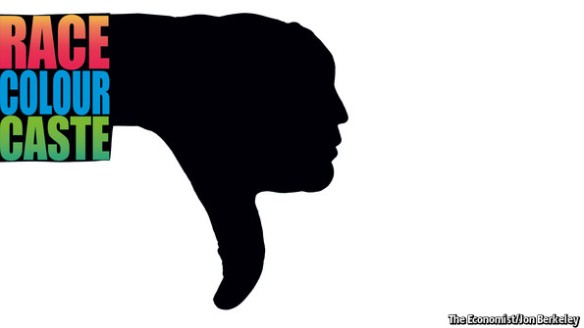Quebec recently proposed a new Charter of values that outlines the prohibition of religious clothing and symbols in public space.
The proposed Charter will,
“Bar public sector employees — including everyone from civil servants to teachers, provincial court judges, daycare workers, police, health-care personnel, municipal employees and university staff — from wearing a hijab, turban, kippa, large visible crucifix or other “ostentatious” religious symbols while on the job.”
Though the Charter is meant to address religious dress and symbols in public space, its impact reaches far beyond office doors, influencing the perception of individuals in shared space and in the private sphere.
Muslims in Quebec are particularly impacted by the limitations of the Charter. “They [Muslim women] get condescending looks, insults, (and) they get spat on on the streets,” Valerie Letourneau, a Muslin women’s group’s spokesperson, told CTV Montreal.
While the Charter preaches tolerance and neutrality, it instead provides the public with government sanctioned intolerance and favoritism. The government’s adoption of such a Charter would show citizens that the government condones intolerance and prejudice and would marginalize people of many different faiths who chose to make Quebec their home.
The separation of church and state is, in my opinion, vital to a progressive, multicultural and nondiscriminatory Canada.
Public space should not be used to promote or endorse any particular religious belief. Though I support this separation, the Charter is counterintuitive to an authentic separation of religious and public life.
The Charter unashamedly favors Christian symbols and practices (crosses in public buildings, prayer before council meetings etc.) within government life while deeming non-Christian symbols and rituals “ostentatious,” a vague and brutally subjective distinction.
A recent poll from La Presse measured the public reaction to the proposed Charter. 78 per cent of Quebecers believe it is “important to preserve historic Catholic symbols,” while 56 per cent say “the Catholic religion should have special status in Quebec.”
When officials were questioned about the crucifix and prayers in council meetings, they defended these actions as a “preservation of culture.” Anyone with a background in religious studies understands how troublesome assertions of the religion/culture distinction can be. These two categories do not exist as separate and clearly defined categories, but rather as muddy and complex systems of practice that constantly overlap, interconnect, and contradict one another.
Some argue that religious belief systems in public life are being replaced with equally limiting secular belief systems.
Reverend John Counsell is the lead pastor at Vanier Church in Ottawa and he recently commented on secularism’s ideological role in the Charter proposition. Counsell says, “The Charter establishes secularism as the only belief system accepted and protected by the Quebec government. Now the prophets and champions of secularism are adamant that it maintains a ‘neutral’ position towards religion, but the only difference between secularism and recognized ‘religion’ is the insistence that secularism is not a belief system.”
For Counsell, secularism is as limiting and biased an ideology as religion.
Counsell makes an interesting point, highlighting the replacement of one system for another, both failing to cater to all worldviews. He highlights the fundamental problem brought to light by the Charter proposition.
It is the challenge of democratic governments, particularly in Canada’s multicultural context, to provide every citizen with equal freedom and access to full expression of their own beliefs.
The proposed Charter of values put forth in Quebec blatantly favors Christian practices in public space. Religious practice and symbolism are smuggled into public space as culture preservation, while other religious practices and symbols are deemed offensive and “ostentatious.”
Though, as Counsell points out, not all citizens prefer secularism, some form of secularization must anchor public life and government structure if neutrality will ever hope to be achieved.
http://www.sharnoffsglobalviews.com/quebec-human-values-charter-196/



